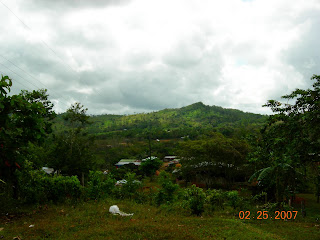 We are often referred to as "missionaries" (by people in North America) or "misioneros" (by people here). Let me (Beth) preface all my questions by saying that I have deep respect for so many people who have devoted their lives to cross-cultural understanding and ministry as "missionaries." They are very humble, and while I won't name names here, you adventurous, self-sacrificing people know who you are.
We are often referred to as "missionaries" (by people in North America) or "misioneros" (by people here). Let me (Beth) preface all my questions by saying that I have deep respect for so many people who have devoted their lives to cross-cultural understanding and ministry as "missionaries." They are very humble, and while I won't name names here, you adventurous, self-sacrificing people know who you are.So here are some questions . . . Am I a missionary? What is a missionary? What is the mission? As I was growing up, here was my general understanding of "missions": "God loves the world, but there are some people who don't know Jesus, and they are going to hell if we don't tell them. How committed are you to God? Because there are several ways Christians can be involved . . . people who send, people who give, people who pray, and people who go to tell the lost about Jesus." Now which of those options do you think my oldest-child, overachieving, looking-for-adventure kind of personality is going to choose?! Of course I want to be a mission
 ary. But then I learn about "missions" in history and I go to college and start learning about Western imperialism and I go to Egypt and see how much I have to learn from other cultures (and even religions!) and I work in LA and learn about racism and cultural superiority and I start to get really gun-shy of this term "missionary." And now I have more questions, like: What does it mean to "know Jesus"? Who are "the lost"? I know that I want to follow Jesus, and I firmly believe that means (at least in part) embodying the Kingdom and mutually demonstrating love and empowering others to follow Jesus (as they empower me too). Plus, I believe that my specific vocation may have something to do with inter-cultural communication. So there's a little background on me personally. . . there's much more to come--more of my thoughts, comments from Nicaraguans, fellow MCC team members, academic missiological journals, Henri Nouwen, etc.--in parts 2-? :)
ary. But then I learn about "missions" in history and I go to college and start learning about Western imperialism and I go to Egypt and see how much I have to learn from other cultures (and even religions!) and I work in LA and learn about racism and cultural superiority and I start to get really gun-shy of this term "missionary." And now I have more questions, like: What does it mean to "know Jesus"? Who are "the lost"? I know that I want to follow Jesus, and I firmly believe that means (at least in part) embodying the Kingdom and mutually demonstrating love and empowering others to follow Jesus (as they empower me too). Plus, I believe that my specific vocation may have something to do with inter-cultural communication. So there's a little background on me personally. . . there's much more to come--more of my thoughts, comments from Nicaraguans, fellow MCC team members, academic missiological journals, Henri Nouwen, etc.--in parts 2-? :)(Photos: Can you find the missionaries in these pictures? The top one is from a worship service/anniversary celebration of a Mennonite church in Managua, the bottom one is from our recent work and learn team here from North America)





 And last week, while meeting with a group of women, I even preached my first sermon in Spanish!
And last week, while meeting with a group of women, I even preached my first sermon in Spanish!


